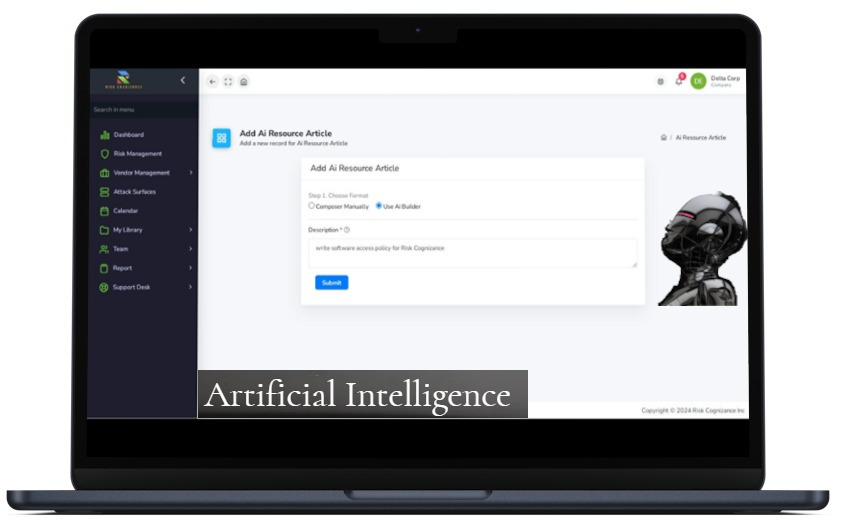Overview
Safety Audit Software is essential for organizations seeking to meet industry-level health and safety standards, particularly in the healthcare sector. However, due to the unique nature of each business, there isn't a one-size-fits-all solution. Risk Cognizance offers a variety of audit applications, making it crucial for healthcare organizations to find the right tool that not only complies with HIPAA standards but also enhances operational efficiency and monetary savings.
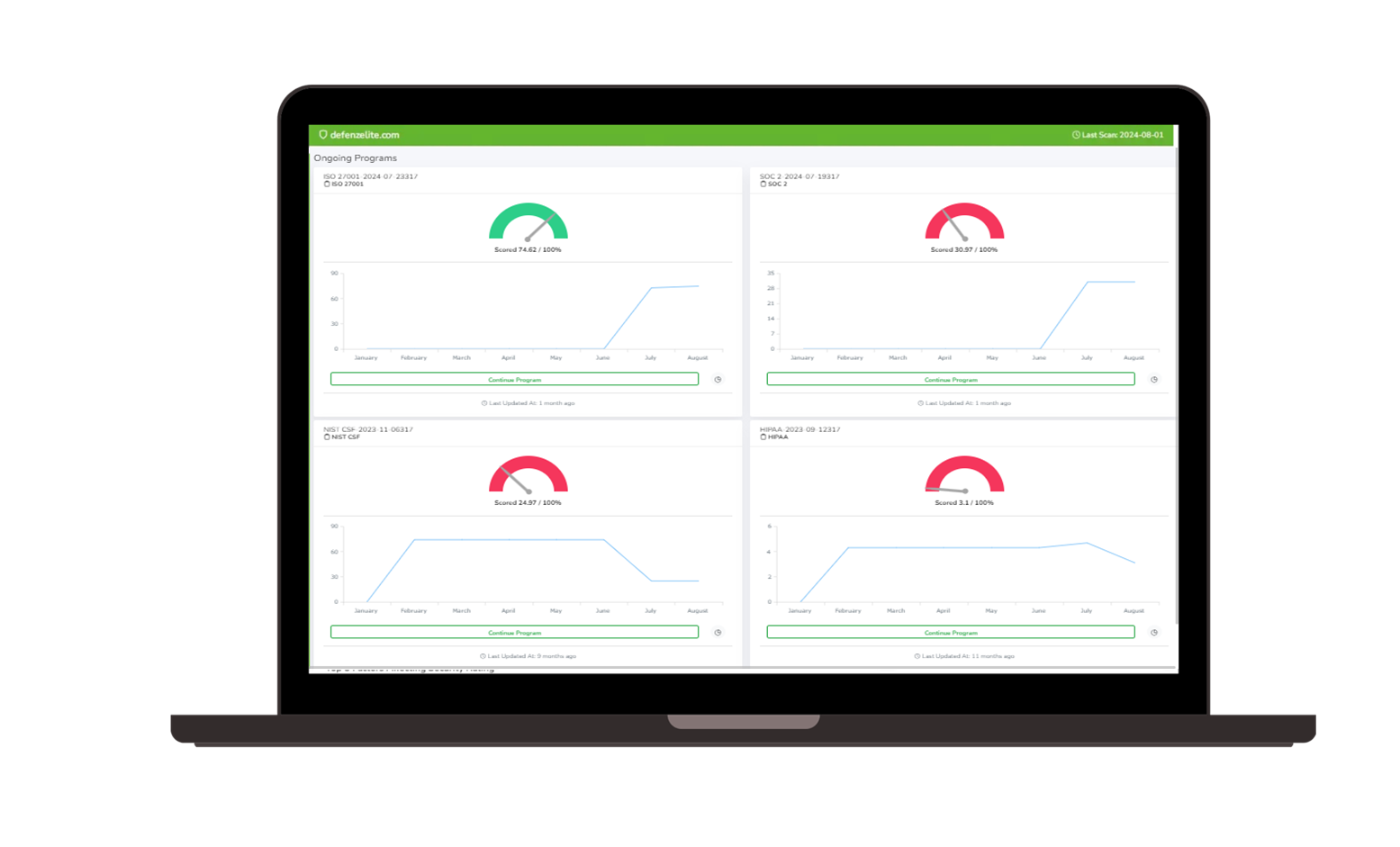 Governance, Risk, and Compliance (GRC) | 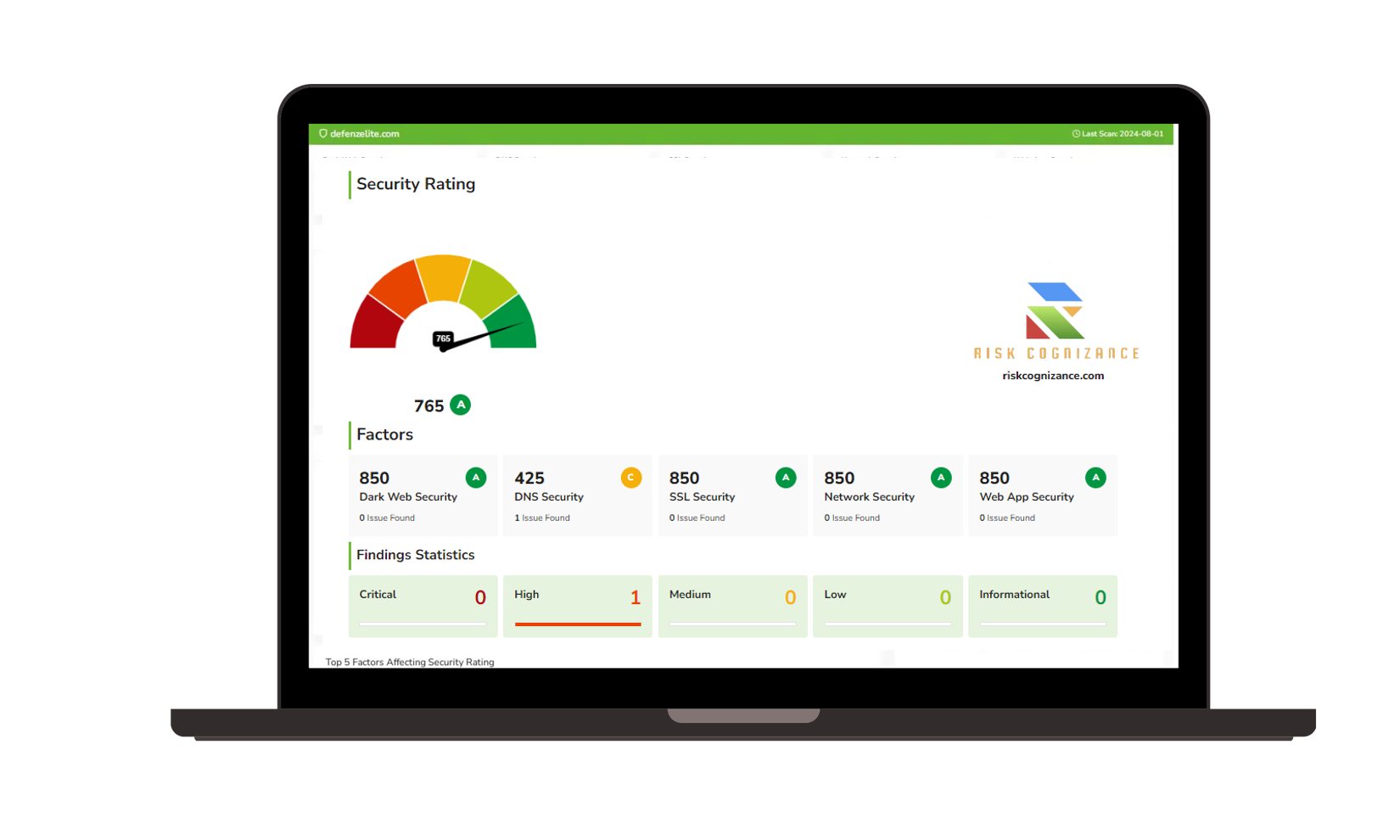 Third-party Risk Management |
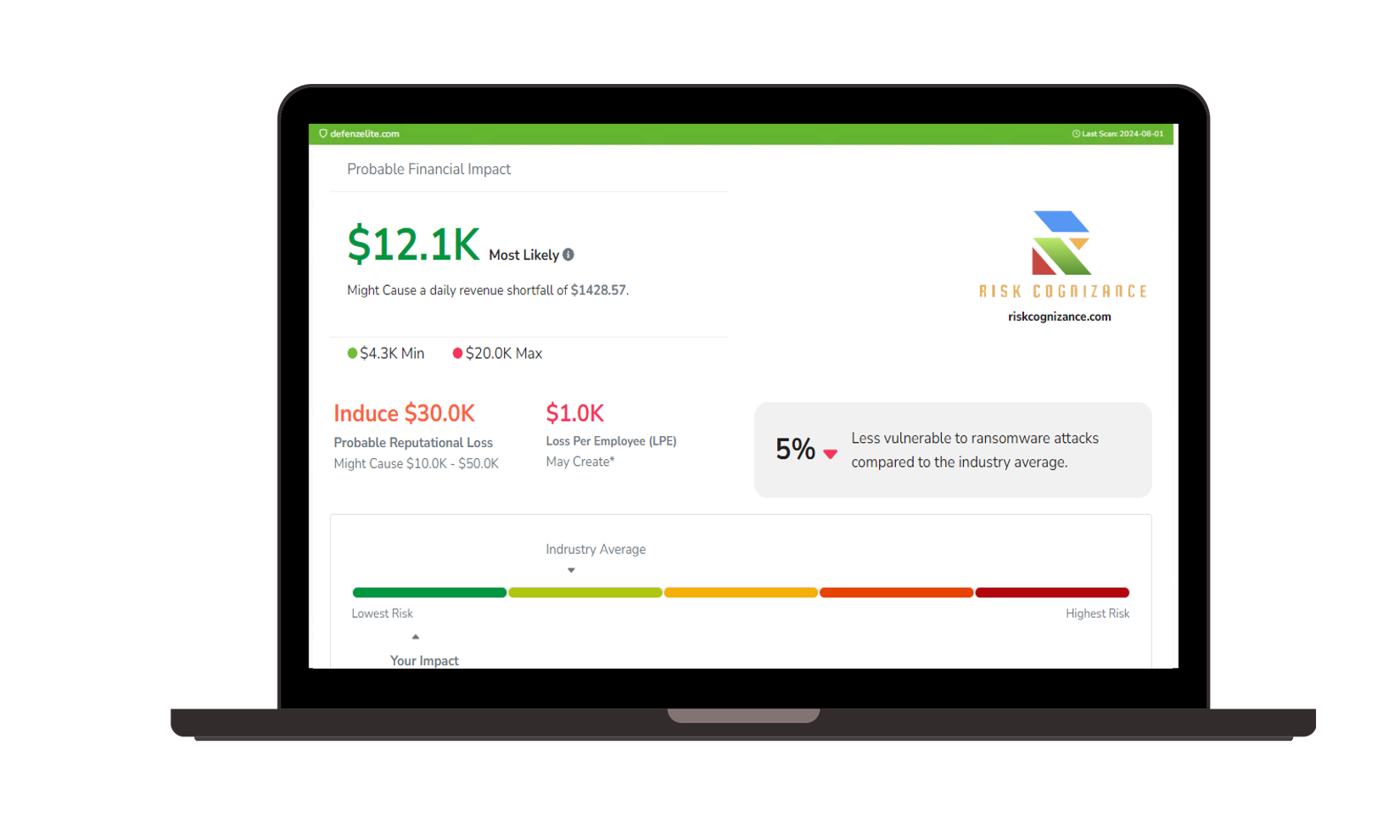 Ransomware Susceptibility | 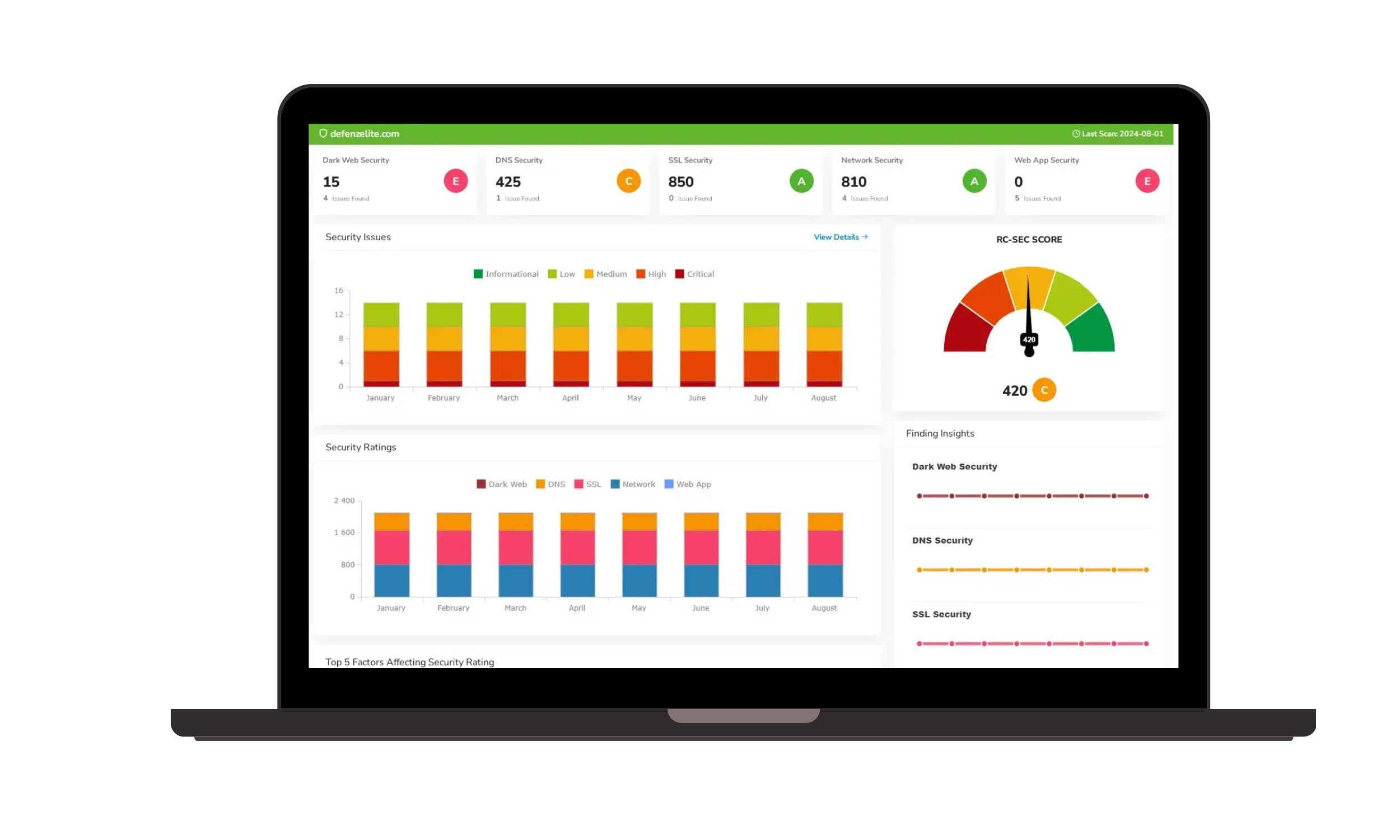 GRC and Attack Surface |
Artificial Intelligence | |
What is Risk Cognizance Healthcare HIPAA Compliance Platform Software?
Risk Cognizance Healthcare HIPAA Compliance Platform Software minimizes health and safety hazards in the workplace while providing functionalities for data analysis and paperwork management. These tools help healthcare organizations align their operations with applicable laws and regulations. By utilizing internal controls software or audit management software, businesses can conduct internal audits more effectively, saving both time and money compared to hiring external auditors.
The right HIPAA compliance software from Risk Cognizance streamlines the internal workflow of a healthcare organization, allowing for the storage and regulation of audit findings while reducing manual interventions. To be effective, such software should feature user-friendly templates and procedures, requiring no specialized training to ensure compliance with HIPAA regulations. Additionally, it should be tailored to the specific healthcare environment to offer efficient solutions.
Principal Types of Safety Audits in Healthcare
Safety audits can be categorized into three primary types, depending on the nature of the data collected:
1. Compliance Audit
A compliance audit is a fundamental audit type that verifies whether a healthcare organization adheres to HIPAA standards. Auditors compare management activities against HIPAA regulations to assess compliance levels. Non-compliance can lead to significant fines, making this type of audit a priority for many healthcare organizations. However, compliance audits often focus solely on visible issues, potentially overlooking critical threats that require immediate attention.
2. Program Audit
A program audit evaluates the effectiveness of specific healthcare programs to determine if they can produce safe outcomes. While it may not authenticate adherence to industry standards, it is instrumental in testing Health, Safety, and Environment (HSE) regulations within healthcare. This type of audit analyzes program formats and procedures, identifying gaps that need addressing.
3. Management System Audit
The management system audit combines elements of both the program and compliance audits. This comprehensive audit assesses healthcare management activities, existing procedures, and overall performance. It includes in-depth analyses such as staff interviews and evaluations of workplace and equipment conditions. The final report is based on a comparison of observed practices against regulatory norms, providing a detailed overview of compliance.
How to Choose Healthcare Compliance Software
When selecting a healthcare compliance software solution, consider the following key points:
1. Identify Your Compliance Needs
Begin by pinpointing the specific compliance requirements your organization must meet, ensuring the software can effectively address various regulatory demands such as HIPAA.
2. Assess Risk Management Capabilities
Choose software that offers robust features for identifying, assessing, and mitigating risks, especially in high-risk operational areas.
3. Integration with Existing Systems
Evaluate how well the compliance tool integrates with your current technology stack, including other governance, risk, and compliance systems.
4. Scalability and Flexibility
Select a solution that can grow with your organization, accommodating evolving compliance needs as your healthcare facility expands.
5. User-Friendly Interface
Opt for software with an intuitive interface and strong support options to facilitate user adoption and minimize errors.
Conclusion
In today's regulatory landscape, Risk Cognizance Healthcare HIPAA Compliance Platform Software is not just a luxury; it's a necessity for organizations striving for compliance with health and safety standards. By understanding the different types of audits, evaluating the software solutions available, and considering your specific needs, healthcare organizations can choose a tool that best fits their unique requirements, ultimately leading to a safer and more efficient workplace.
Request Callback

